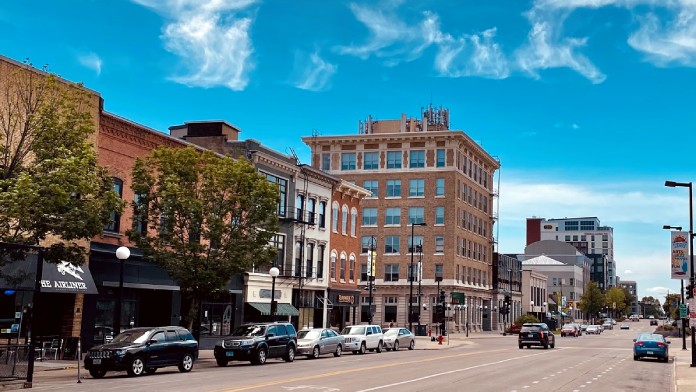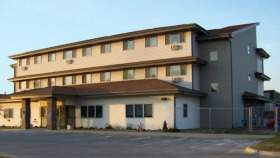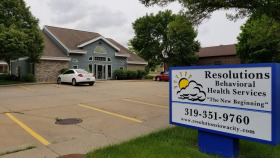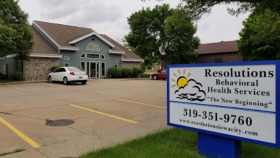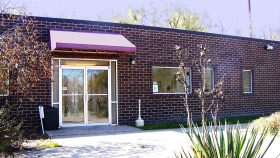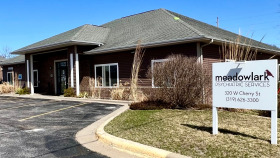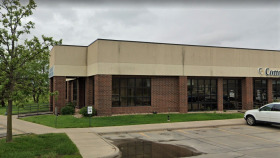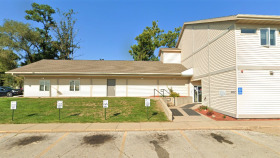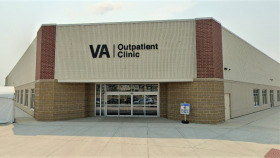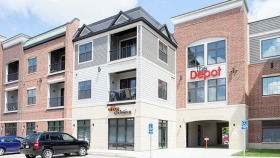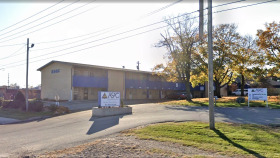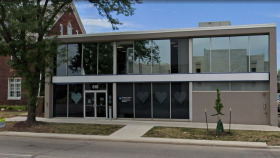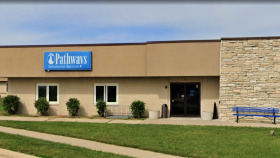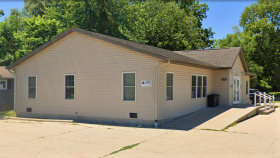Alcohol and Drug Use Statistics In Iowa City, IA
Binge drinking, opioid, and other substance abuse are common in Iowa City and Johnson County. In Iowa as a whole, meth use has been a problem. Facts about substance abuse in this region include:2,3
29% of motor vehicle deaths in Johnson County in 2021 involved alcohol.
6% of Johnson County residents lack health insurance, making access to addiction treatment difficult.
23% of Johnson County residents reported excessive drinking in 2021.
Fentanyl was implicated in 87% of opioid overdose deaths in Iowa during the first half of 2021.
Levels of Substance Abuse Care
Various levels of substance abuse treatment are available. You’ll want to know the different options before choosing a program.
Professional Detox
Drug detox is a set of interventions aimed at managing uncomfortable withdrawal symptoms, helping you to achieve a substance-free and medically-stable state. Detox isn’t always necessary, but it is recommended for alcohol, benzo, and opioid addictions.
Inpatient Care
You live at the treatment facility for the entire length of the program, ranging from 30 to 90 days, receiving around-the-clock care, including individual therapy, group therapy, support groups, family therapy, medication (if applicable), and more.
Partial hospitalization programs (PHPs)
You live at home while attending therapy and counseling for several hours each day at a hospital or facility—between 20 and 30 hours per week. This is a great option for those who need a high level of support but don’t want to live elsewhere.
Intensive Outpatient Programs (IOPs)
You live at home while receiving therapy and other services in an outpatient setting for anywhere from nine to 20 hours per week.
Standard Outpatient
The least intensive and structured option, you live at home and receive two to four hours of treatment per week. This option may be beneficial for someone with a mild addiction who has a great support system and strong motivation to get sober.
Relapse Prevention
After completing your initial treatment program, you will want to continue with relapse prevention services, such as support groups, ongoing therapy, transitional housing, or some combination of many services.
How to Pay for Addiction Treatment in Iowa
The following are various ways to finance your recovery program:
Private Insurance
If you have private health insurance from the Healthcare Marketplace or through your place of employment, you can use your insurance to cover the cost of drug and alcohol rehab. By law, your provider is required to cover addiction treatment services to the extent they cover medical services. This means they will likely provide partial or full coverage for treatment.
Iowa Medicaid
Iowa Medicaid is a federal health insurance program that provides coverage for low-income people and families who don’t have access to private insurance. You can use Iowa Medicaid to cover the cost of drug rehab in Iowa City.
Medicare
Iowa Medicare provides health insurance coverage to people aged 65 and older. Like Medicaid, Medicare covers substance abuse treatment services, such as inpatient and outpatient rehab as well as substance abuse assessments.
TRICARE in Iowa
Iowa is located in the West Region for TRICARE, a government program providing health insurance coverage for military personnel, veterans, and their families. You can use TRICARE to cover the cost of drug and alcohol rehab, making it more accessible.
Sliding Scale Payment Options
If a free rehab is full or has a long waiting list, you can apply to a sliding scale rehab, which only charges you what you can reasonably pay based on your income.
IHS-Funded Drug Rehabs
The Indian Health Services provides funding for some Iowa drug and alcohol rehab centers, making them able to provide free treatment to Indigenous people.
Local Information: Traveling to and Within Iowa City, IA
Families can easily visit loved ones who attend an Iowa City alcohol or drug rehab program. The nearest major airport is Cedar Rapids Airport, which is only a short drive away. You can drive to Iowa City via Interstate 80 or U.S. Route 6.
Once you reach Iowa City, you can use public transit in the areas near the university. Having a car will make it easier to get around the city as a whole. There are plenty of hotel choices, with large chain hotels available throughout the city. Sites like Airbnb offer listings of private rentals for visitors.
Iowa City is home to the University of Iowa. Visitors can see sporting events and cultural performances on campus. There is a variety of restaurants and coffee shops in the area. For visitors who enjoy outdoor activities, it’s a short drive to hiking and fishing opportunities in the Hawkeye Wildlife Management Area northwest of Iowa City.
Iowa Substance Abuse and Treatment Laws
Iowa has several substance abuse and treatment laws that can help save lives, including:1
Residential Substance Use Disorder Treatment Act of 2021: This act increased access to drug addiction treatment services in prisons and jails and helped people transition to treatment in the community.
Americans with Disabilities Act (ADA): This law includes drug and alcohol addiction as a disability, which means you may be eligible to receive disability benefits.
Code of Iowa Chapter 321J.17: This law requires that Iowa drivers who receive a DUI must undergo a substance misuse assessment.
Iowa Good Samaritan Law: This law encourages witnesses to call 911 in the event of an overdose by protecting them from prosecution for drug possession.
Resources
- Governor’s Office of Drug Control Policy, (no date), Iowa Drug Control Strategy and Drug Use Report 2022.
- County Health Rankings, (no date), Johnson County, IA.
- Your Iowa Life, (no date), Drug Trends in Iowa.

